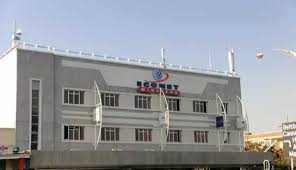Leading telecommunications giant, Econet Wireless Zimbabwe Limited, has lamented distortions in the currency exchanges rates, which the listed company says have a bearing on the cost of goods and services in the country.
Owing to the depreciation of the Zimbabwe dollar almost daily, prices in the local currency have continued on a rising trajectory for more than a year now.
In the latest trading update, Econet company secretary, Charles Banda, said the company was operating in a difficult environment.
“Within the quarter, the interbank exchange rate increased 38% from ZW$17 to ZW$25 against the United States Dollar whilst the Old Mutual implied rate increased 124% from 45.6 to 102,” he bemoaned
“Although the Old Mutual implied rate is not reflective of the pricing of goods in the market, it is an indicator of the distortions that exist in the market. These distortions have a bearing on the cost of goods and services, including our own. The local cost of providing our services is increasing in line with market trends, where the alternative market is used for reference pricing.”
Banda said it was regrettable that the regulatory tariff increases continue to lag behind inflation and have not yet factored the full impact of the exchange rate depreciation and hyperinflation.
“The company together with the other players in the industry continues to engage with the regulator (Postal and Telecommunications Regulatory Authority of Zimbabwe) to implement tariffs that sustain the viability of the sector as well as ensure that a high quality of service standard is maintained,” he said.
“The regulator has adopted the Telecommunications Pricing Index (TPI) as the tool for setting tariffs while our costs have been increasing in line with the movements in the formal rate of exchange, albeit, with very little availability of foreign currency. The frequency and responsiveness to market changes have been low and slow, resulting in our real tariffs being severely undermined.”
He added: “This means that we are not able to pay our vendors for software licences and certain upgrades required to increase our capacity and maintain the quality of service that our customers have come to expect from us.”
Banda said as part of the business survival strategy, the company was targeting to reduce operating expenditure by 20% adding they had since made a call to their partners and suppliers to reduce their prices by the same margin.
“The operating environment remains very volatile and uncertain,” he further lamented.
“We anticipate that the depressed demand in the wake of the COVID-19 pandemic, depreciating local currency and hyperinflation will continue in the short term. As such, cost containment and cash flow management are key focus areas for the company to navigate the crisis. The company’s digital transformation roadmap will ensure that we continue to provide quality service to all our customers.”

